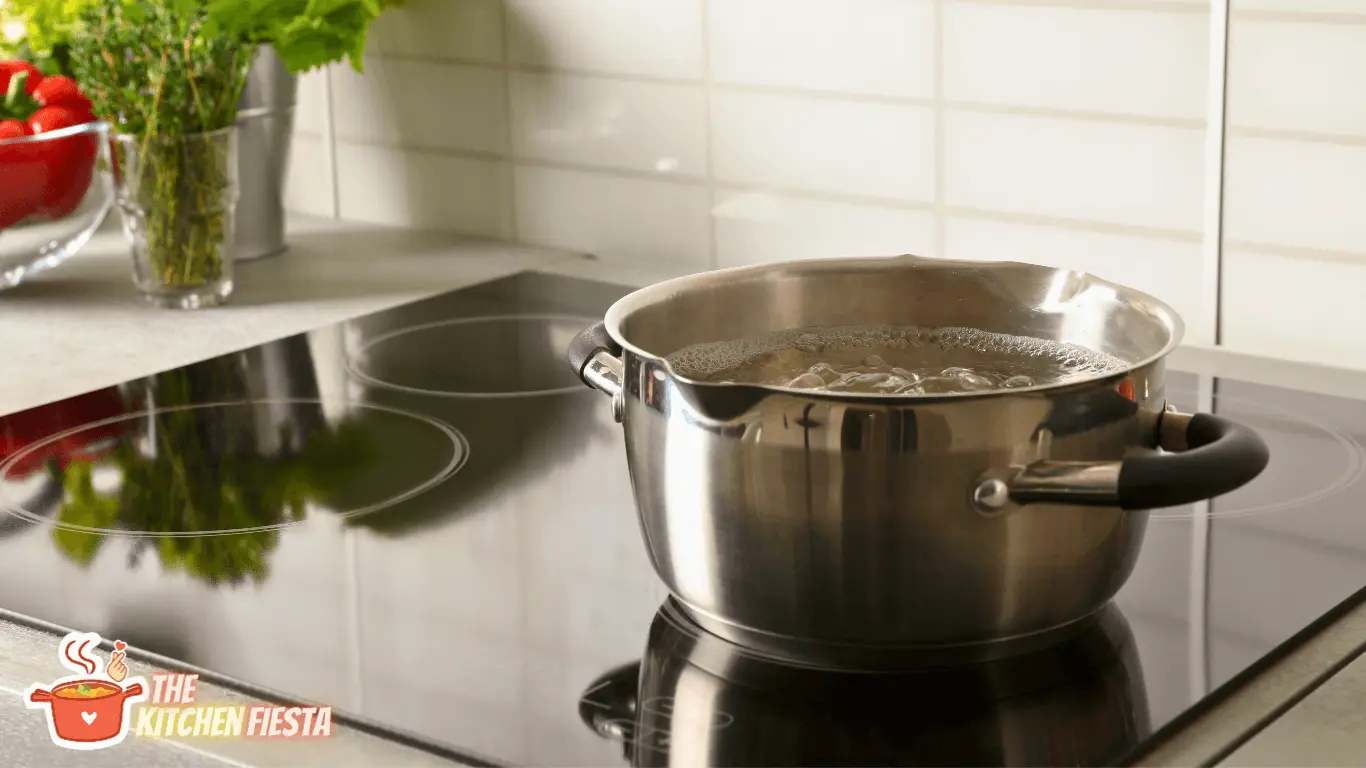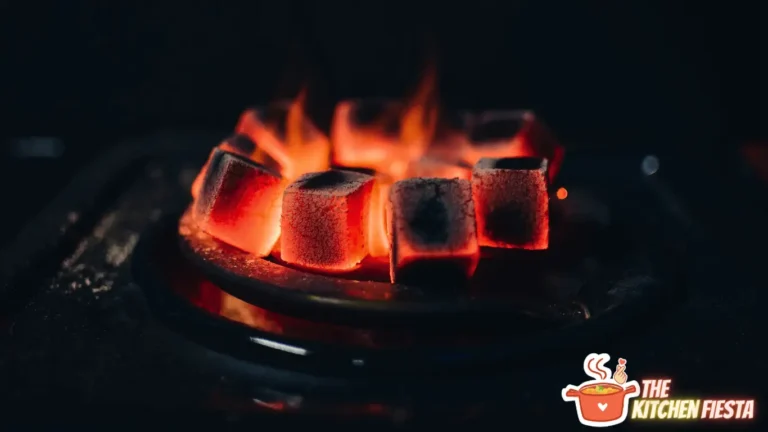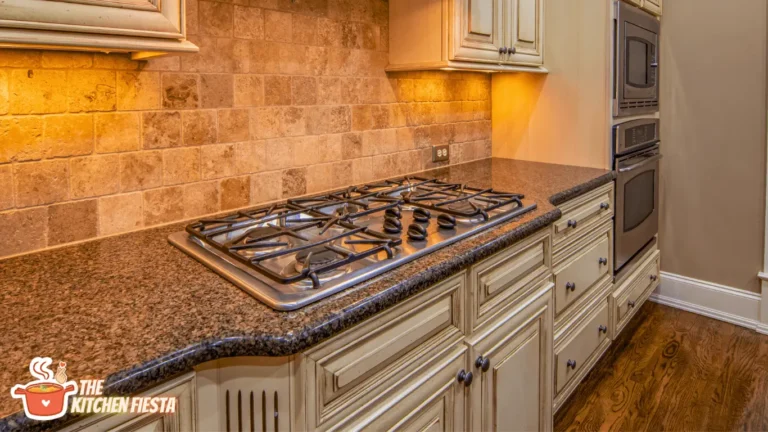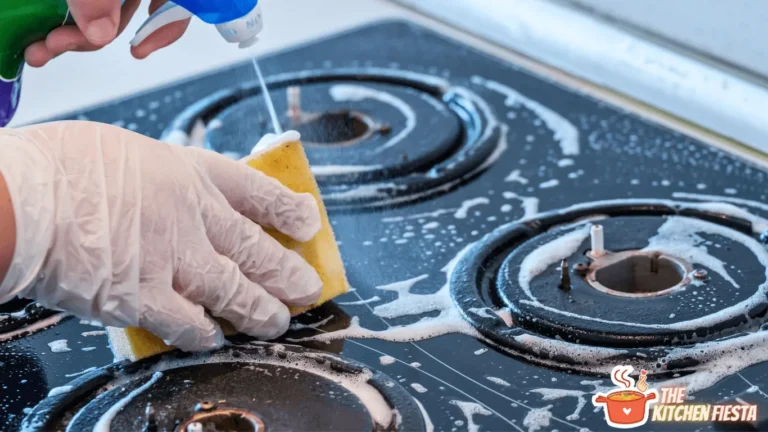Electric stove takes forever to boil water (1 Min Fixes)

Have you ever experienced an electric stove taking forever to boil water? It can be frustrating, especially when hurrying to prepare a meal or make a cup of tea. We’ve all been there, wondering why it’s taking so long and if there’s anything we can do to speed up the process.
Electric stoves generally take longer to boil water than gas stoves due to their slower heating properties. It may take 5 to 10 minutes to bring one liter of water to a boil on an electric stove. And, if your electric stove takes unusually long to boil water, there are a few reasons. The size and shape of the pot you are using could affect the time it takes for the water to boil. A pot that is wider and flatter will heat up more quickly than a pot that is taller and more narrow.
This article will explore why electric stoves may take longer to boil water than gas stoves. We’ll also provide some tips and tricks on how to make the process faster and more efficient. Whether you’re a seasoned chef or a beginner in the kitchen, these insights will help you save time and energy when using an electric stove. So, let’s get started!
Possible Causes
If you are experiencing issues with your electric stove taking forever to boil water, there could be several reasons. In this section, we will discuss some possible causes to help identify the root of the problem.
1. Insufficient Power Supply
An insufficient power supply is one potential cause of an electric stove taking forever to boil water. If the stove is not receiving enough power, it may not be able to heat the water quickly enough. Various factors, such as a faulty circuit breaker or a damaged power cord, can cause this.
To determine if this is the issue, it is recommended to have an electrician check the stove’s power supply. They can test the voltage and amperage to ensure the stove receives the correct amount of power.
2. Faulty Heating Element
Another possible cause of an electric stove taking forever to boil water is a faulty heating element. Over time, the heating element can become damaged or worn out, affecting its ability to heat up quickly.
To check if this is the issue, you can visually inspect the heating element for any signs of damage, such as cracks or discoloration. If you notice any damage, it is recommended to replace the heating element.
3. Malfunctioning Thermostat
A malfunctioning thermostat can also cause an electric stove to take forever to boil water. The thermostat is responsible for regulating the stove’s temperature. If it is not functioning properly, it may be unable to heat the water quickly enough.
To determine if this is the issue, you can use a thermometer to check the thermostat’s accuracy. If the temperature is inconsistent with the thermostat setting, it may need to be replaced.
Several factors, including an insufficient power supply, a faulty heating element, or a malfunctioning thermostat, can cause an electric stove to take forever to boil water. Identifying the root cause of the issue is essential to address and fixing it properly.
Troubleshooting Tips
If your electric stove is taking forever to boil water, there are a few things you can check to troubleshoot the problem. Here are some tips to help you identify the issue and fix it.
1. Check Power Supply
The first thing to check is whether your electric stove is getting enough power. If the stove is not receiving enough power, it may not be able to heat the water quickly enough. Here are some things to look for:
- Check the circuit breaker: Make sure the circuit breaker for your stove is not tripped or turned off. If it is, reset it and see if that helps.
- Check the outlet: Make sure the outlet your stove is plugged into is working properly. You can test it with another appliance to see if it works.
- Check the power cord: Make sure the power cord for your stove is not damaged or frayed. If it is, replace it.
2. Inspect Heating Element
The heating element is next to check if the power supply is not the issue. The heating element heats the water, so it will take longer to boil if it is not working properly. Here are some things to look for:
- Check for damage: Look for any visible damage to the heating element. If it is damaged, it will need to be replaced.
- Check for corrosion: If the heating element is corrupted, it may not be able to heat the water properly. Clean it with a soft brush or cloth.
- Check for loose connections: Ensure the heating element is properly connected to the stove. If it is loose, tighten it.
3. Test Thermostat
You should test the thermostat. The thermostat controls the stove’s temperature, so if it is not working properly, the stove may be unable to heat the water quickly enough. Here are some things to look for:
- Check the temperature setting
- Test the thermostat
Preventive Measures
When preventing your electric stove from taking forever to boil water, there are a few things we can do to ensure that the stove is functioning optimally. Here are some preventive measures that we can take:
1. Regular Maintenance
One of the most important preventive measures we can take is to keep our electric stove well-maintained. This includes cleaning the stove regularly, checking the burners for damage, and ensuring the wiring is in good condition.
2. Proper Use and Care
Another important preventive measure is properly using and caring for our electric stove. This includes using the right size pot for the burner, not overloading the stove with too many pots at once, and not using the stove for any other than cooking. By using and caring for our electric stove properly, we can help to prevent any issues with boiling water.
Here are some tips for the proper use and care of our electric stove:
- Use the right size pot for the burner. Using a pot that is too large or too small can cause the stove to take longer to boil water.
- Refrain from overloading the stove with too many pots at a time. Overloading the stove can cause it to take longer to heat up, resulting in slower boiling times.
- Don’t use the stove for any purposes other than cooking. Using the stove for purposes other than cooking, such as heating the kitchen, can cause it to take longer to heat up, resulting in slower boiling times.
Summary
You’re not alone if you’re frustrated with your electric stove taking forever to boil water. We’ve done some research and found some possible reasons why this is happening.
Across the board, several factors can contribute to an electric stove taking longer to boil water. Still, considering these tips, you can speed up the process and make your cooking experience more efficient.
FAQs: Electric stove takes forever to boil water
Can A Pressure Cooker Boil Water Faster Than An Electric Stove?
A pressure cooker can help you boil water faster on an electric stove. According to The Spruce Eats, a pressure cooker can cook food up to 70% faster than traditional cooking methods. This is because the pressure inside the cooker raises the boiling point of water, allowing it to cook food faster.
Does The Size Of The Pot Affect How Long It Takes To Boil Water On An Electric Stove?
A larger pot will take longer to heat up than a smaller pot because it requires more energy to heat the larger surface area. Additionally, a pot that is too small for the burner can take longer to heat up because it needs to make full contact with the heat source.
Can I Add Salt To The Water To Make It Boil Faster On An Electric Stove?
Adding salt to water will not boil faster on an electric stove. The amount of salt you would need to add to make a noticeable difference in boiling time would make the water too salty. Adding salt can increase the boiling point of water, making it take longer to boil.
Is It Better To Boil Water With The Lid On Or Off An Electric Stove?
Billing water with the lid on an electric stove is generally better. Covering the pot with a lid traps the heat inside, allowing the water to come to a boil faster. Suppose you are cooking something that requires the water to evaporate, such as pasta. In that case, it is better to leave the lid off so the water can evaporate.






